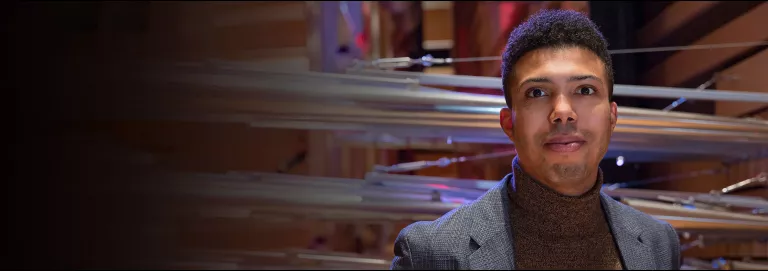
Northrop Presents
Alcée Chriss III, Organ Recital
Past event
Oct 24, 2023
Oct 25, 2023
Oct 26, 2023
Oct 27, 2023
Oct 28, 2023
Oct 29, 2023
A featured star in the PBS documentary Pipe Dreams, Alcée Chriss III is an organist, composer, and conductor from Fort Worth, TX. The son of a minister, Chriss is known for incorporating gospel and jazz influences into his performance—having first learned jazz and classical on the piano before turning to the organ as a teenager. Winner of the 2017 Canadian International Organ Competition and the Bach prize, Chriss is widely regarded as one of the leading young organists of our time.
The content below derives from the Northrop Across Campus Program that supports Northrop's mission towards intersections between performing arts and education for the benefit of all participants now and for generations to come.
Find ways to make thematic connections to these suggested topics:
Take a deeper dive with these resources that provide additional information about the performers, the history of the artform, and the artistic process.
Links:
Start a conversation about the performance, or encourage reflection, using these questions as inspiration.
In his interview on the Hammond Organ with Future Stops podcast, Alcée Chriss III explains that his childhood experiences with music at Morningside United Methodist Church in Fort Worth, Texas were “the inception” of who he is today. Even now, the gospel music of his youth influences his work.
In 2017, Alcée Chriss III won the Canadian International Organ Competition and was featured in a documentary about the competition called Pipe Dreams.
In his 2021 interview with the Canadian International Organ Competition, Alcée Chriss III says that his first ideas about the pipe organ came from children’s cartoons that depicted it as a “dark, mysterious instrument that was far too complicated for any normal person to understand.” He didn’t have an opportunity to play a real pipe organ until he was 16.

This activity is made possible by the voters of Minnesota through a Minnesota State Arts Board Operating Support grant, thanks to a legislative appropriation from the Arts and Cultural Heritage Fund.